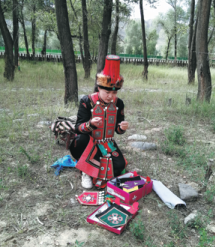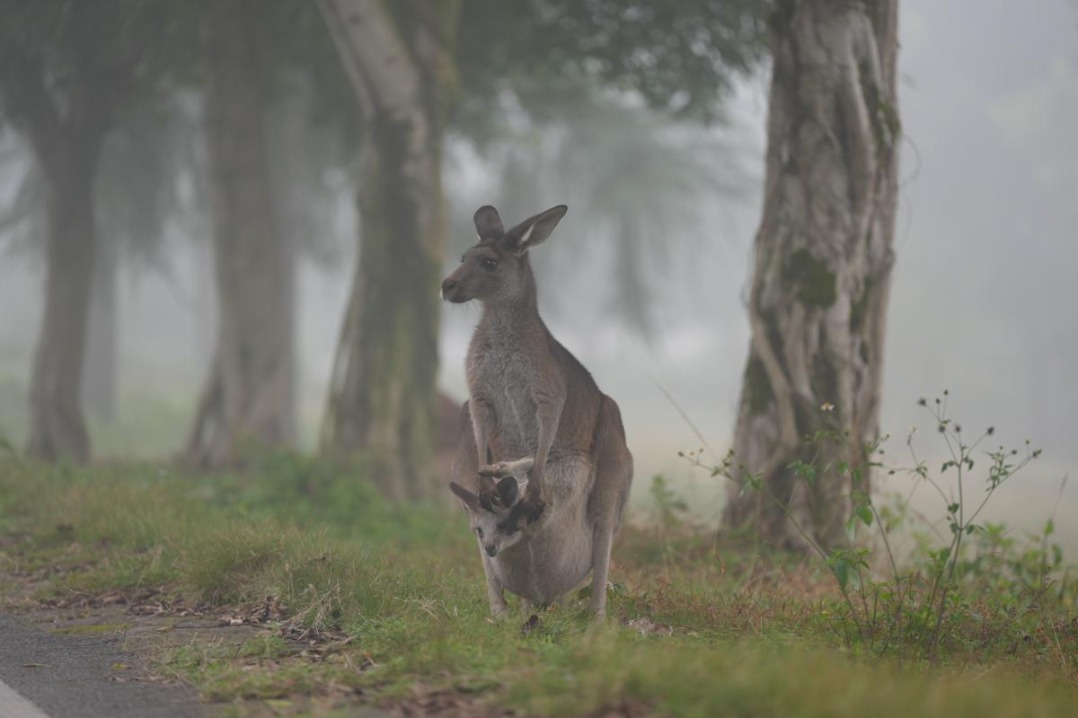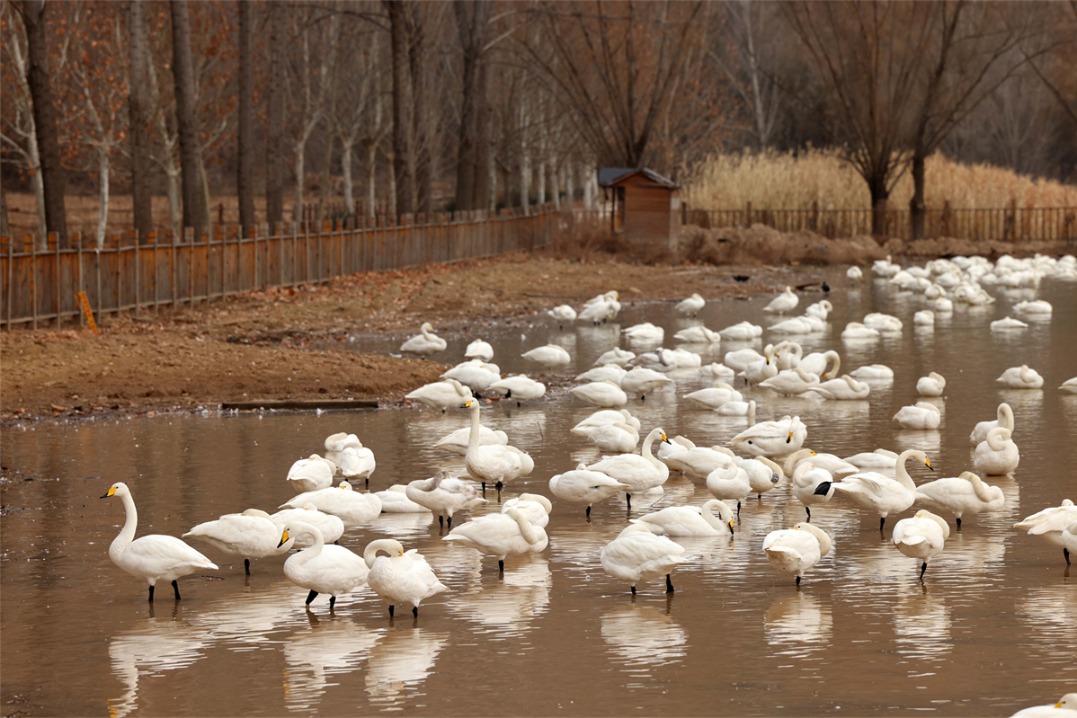Dressmaker has ethnic costumes all sewn up


Lin Quzhi, a dressmaker from the Yugur ethnic group in Gansu province, once found herself in a fix because she didn't have enough cloth to finish traditional wedding gowns within a young couple's six-week deadline.
About three weeks into the task, Lin discovered that she did not have enough hezi, a kind of cloth woven from cow hair, that her clients had requested as the main material for their gowns. Yugur clothes are usually made from silk or cotton.
The Yugur were once nomads who lived by herding. Like most of the current population of about 10,000, Lin lives in Sunan Yugur autonomous county in Zhangye, Gansu. Traditionally, group members drew on local resources and made their clothes, tents and bags from cow hair.
Friends Lin asked for help were unable to supply more cloth, so she had to search across the grassland.
"It was due to a lack of workers who could make cloth from cow hair. Those who had the right skills were too old to produce the material, while not many younger people want to learn. Nowadays, very few people take the time to make fibers from cow hair because logistics companies can quickly transport various modern clothing materials to any location," she said.
Fortunately, she eventually found an elderly woman who made the cloth in a village about 30 kilometers from the county. That allowed Lin to deliver the order on time.
Recalling the 2018 experience, the 37-year-old said Yugur costumes are not just clothes, but works of art, and they should be handed down.
Before she married, Lin worked for a tourism company in the Tibet autonomous region. In 2010, she and her husband returned to their hometown in Sunan. Later, Lin began learning the traditional skills from Ke Cuiling, her mother-in-law, who is a national inheritor of Yugur costume culture. In 2012, Ke started a cultural company and offered Lin a job.
"Learning traditional techniques is not profitable, so quite a few young people joined our company but left after just a few months," Lin said.
The costumes feature embroidery and accessories such as beads and shells, so tens of thousands of beads have to be strung and then sewn onto each costume. The styles differ according to the subgroup and detailed rules must be followed.
Initially, Lin treated the job as a temporary occupation. She wanted to find a position with the county government but was unsuccessful.
"My parents didn't agree with me making costumes because I have a bachelor's degree," she said.
However, the more Lin researched the Yugur culture and learned the skills, the more settled she felt.
She is still impressed by the experience of training for about 50 days at the Beijing Institute of Fashion Technology in 2016.
"It broadened my horizons. I was amazed at their style of cutting clothes, and it was necessary to leave the county to learn about it," she said.
Her work has been displayed at various shows, including the 2020 China International Import Expo in Shanghai.
She said perseverance is the most important thing she has learned from her years of working with Ke.
"If she believes in something, she will be especially persistent and determined, no matter how hard it is. We all need that attitude to do a job," Lin said.
- US defense policy act fuels Taiwan tensions
- New Year holiday to bring peak in travel
- China's top 10 sci-tech news events unveiled
- Over 700 generative AI large model products complete filing in China
- Beijing accuses Lai of 'kowtowing' to US
- Hong Kong's global standing boosted with increasing presence of intl organizations: justice secretary





































